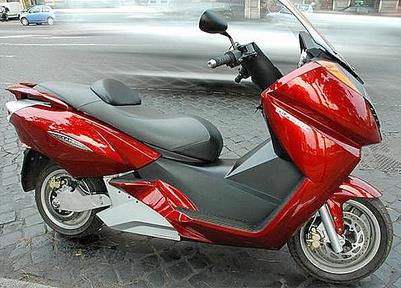
GP BATTERIES International Ltd (SGX: GP Bat) believes in casting a wide net to haul in as much revenue as possible, thus maximizing value for shareholders.
The Singapore-listed firm is directly involved in three of the top five selling battery brands in mainland China, is a major innovator in rechargeable consumer batteries, and has also been a pioneer in the development of rechargeable vehicle batteries for the pure electric and hybrid market.
Company Chairman and Chief Executive Mr. Andrew Ng told NextInsight and Aries Consulting this week that despite a less high profile existence than other global brands, GP Batteries had now achieved a major milestone in its home market.
It is today the No.1 battery brand in Hong Kong, no small achievement that has to compete with the global advertising and promotional budgets of heavyweights like Energizer, Duracell and a list of Japanese rivals too long to list.
"We’re the number one brand here, but it takes time. In Singapore, we’ve been making some headway but Energizer has had a stranglehold for quite some time. Overall, our primary battery business is doing quite well,” Mr. Ng said.

Silent Partner
GP Batteries recently took over control of Rhode Island, USA-based Vectrix Corp, maker of the world's first high performance, two-wheeled zero sound pollution, zero emission vehicle (ZEV).
Always at the forefront of battery technology, GP Batteries is a key player in electric vehicle (EV) battery systems.
"We have been developing electric vehicle batteries since 1993,” Mr. Ng said.
The use of GP's green Nickel Metal Hydride (NiMH) battery by the futuristic hybrid Advanced Public Transport system in the Netherlands further affirms the Singapore-listed firm’s technological achievement and position as a major qualified EV battery supplier in Europe.
"We believe the increasing global acceptance of electric transportation will present tremendous opportunities for our group, and we are poised to participate in this exciting market,” Mr. Ng said, regarding the Vectrix deal.
Emissions related to transportation represent the largest single source of air pollution in the world.
Thanks to high-polluting two-stroke engines, a typical motorcycle/scooter produces significantly more CO2 and pollutants than a large diesel truck, and far more than a modern low emission automobile.
The Vectrix bike utilizes innovative zero-emission technology, offering customers a clean, affordable, and much needed alternative.
"This electric motorcycle is highway worthy, and can reach highway speeds and keep up with traffic. We are now working on selling them in Singapore and Hong Kong,” Mr. Ng said.
"The Singapore government is actively trying to promote green transportation, so the electric motorcycle is a tantalizing concept for potential investors.”
He added that since taking over the US firm, the Poland-based plant was still operating but the Rhode Island plant was currently idle.
"We are also looking for an experienced partner to tie up on technology and make more global inroads.”
Following GP’s buyout of this innovative US firm, the Singapore-based firm is well poised to ride the unstoppable wave of environmental awareness and conservation.
And with operations in rechargeable batteries, vehicle batteries, and now finished battery-powered motorcycles, the company is likely to move from relative obscurity outside of Greater China to a positive force to be reckoned with in the global environmentally-friendly energy products market.
"Traditional 2-stroke gas powered motorcycles are highly polluting, so electric motorcycles are feasible and will directly benefit the air quality in which they operate. In fact, they are more practical than hybrid or fully-electric cars because these motorcycles are only around 100 lbs or so and therefore can go a lot further on a single charge.”
Charging Ahead with Rechargeables, Primaries
GP’s current drive to supply EV power systems and vehicles would continue to be a critical component of the firm’s business plan.
However, GP remained committed to providing the highest value, premium quality primary and rechargeable battery products to the market.
For the most recent reporting season, sales to China and Hong Kong contributed around 20% each to revenue, while the EU was approaching 30% of total sales.
"We also have a strong presence in less-developed markets, notably in Eastern Europe and Russia. And if China opens up even more to foreign brands we will have tremendous growth opportunities there,” Mr. Ng said.
He said orders from supermarkets, convenience stores and electronics shops for its primary and rechargeable batteries continued to show strong momentum, mainly because of the markups that retailers practiced – and consumers tolerated.
Volume sales trumped margin sales for this product category, and eventually a new model might be needed.
In fact, signs of this were already evident, and increased environmental awareness by both the consumers and their leadership was driving the cause.
"Our rechargeable batteries and chargers are also selling very well, and we have made drastic improvements in reliability and quality. In fact, now rechargeables perform just as well as primaries in most applications. Over time, I believe that primaries will be replaced by rechargeable batteries, but it will take time.
"It will also take government incentives such as that we see with customers now being asked to pay for plastic bags in an effort to get them to bring reuseables. Therefore, we are also a big player in the rechargeable battery market as we believe they are the trend of the future.”
Mr. Ng said his company’s Singapore-listed shares were “grossly undervalued,” currently trading at around 4x P/E.
He added that for 2010, the company expected very healthy gross margins of 20%





